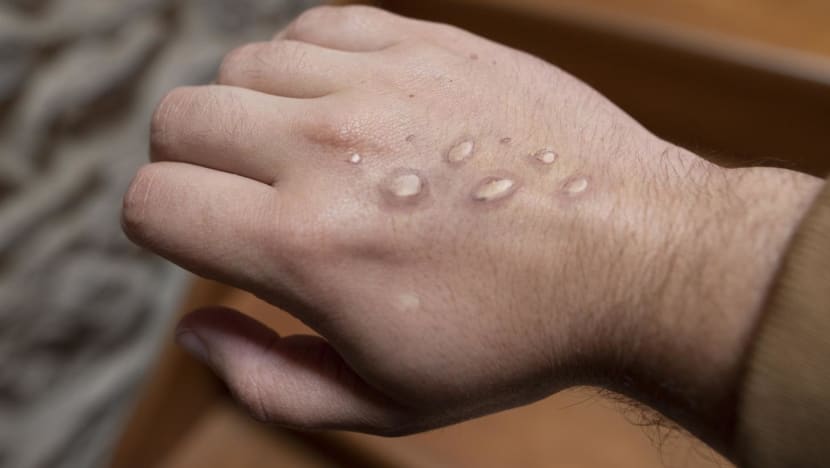
SINGAPORE— The Ministry of Health (MOH) has confirmed the first local case of monkeypox infection in Singapore.
The patient is a 45-year-old male Malaysian national who resides in Singapore. MOH said the man tested positive for monkeypox on Wednesday (Jul 6).
“He is currently warded at the National Centre for Infectious Diseases (NCID) and his condition is stable,” MOH said in a media statement on Wednesday.
The man is not linked to the imported case announced by MOH on Jun 21, it added.
The man first developed lower abdomen skin lesions on Jun 30 and subsequently experienced fatigue and swollen lymph nodes on Jul 2.
He developed fever and a sore throat on Jul 4 and sought medical attention where initial tests for other possible medical conditions were done.
“When these tests returned negative, he was subsequently conveyed to NCID on 6 July, where he was isolated for further assessment,” said MOH.
As of Wednesday, three close contacts – two housemates and one social contact – have been identified.
All close contacts will be placed on quarantine for 21 days from their last contact with the case. Contact tracing is ongoing, said MOH.
Monkeypox is a viral disease that is caused by infection with the monkeypox virus. It is typically a self-limiting illness where patients recover within two to four weeks.
“A small percentage of those infected can fall seriously ill or even die. Those particularly vulnerable to complications are young children, pregnant women or immunocompromised individuals,” said the ministry.
It added that the risk to the general public remains low as transmission requires close physical or prolonged contact.
MOH said it will continue to monitor the monkeypox situation closely and calibrate its preparedness and response measures as needed.
“Members of the public are encouraged to exercise personal responsibility by monitoring their personal health and maintaining good hygiene, especially during travel,” it added.
“They should also avoid close contact with other individuals known or suspected to be ill with monkeypox infection.”

Leave A Comment